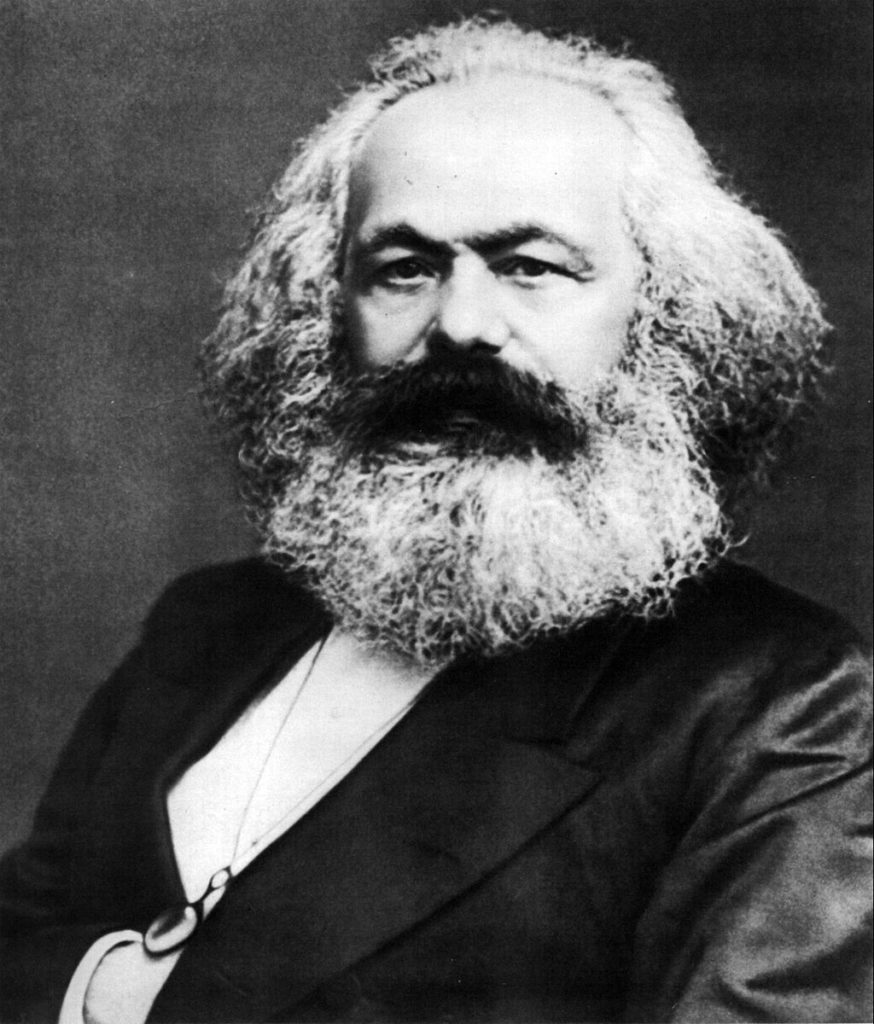
Karl Heinrich Marx was born May 5, 1818 Trier, Prussia (now Germany). At the age of 17, he enrolled in philosophy and literature at the University of Bonn where he joined the Poets’ Club, a group containing political radicals that were monitored by the police. As a member of the Trier Tavern Club drinking society he was engaged in emotional discussions in political science. His poor grades prompted his father to transfer him to the more rigorous program at the University of Berlin.
In October 1836, Marx graduated with a degree in law, but discovered that he was more interested in philosophy, and the works of the German philosopher Georg Wilhelm Friedrich Hegel. In 1831, Karl was awarded a Ph.D. for his doctoral thesis comparing the Democritean and Epicurean philosophies of Nature. His radical views disqualified him for an academic post, so he moved to Cologne in 1842, where he became a journalist for a radical newspaper in which he expressed his views on socialism and economics. On February 21, 1848, Marx and his friend and collaborator Friedrich Engels published The Communist Manifesto, describing the class wars between the bourgeoisie (the wealthy capitalist class) and the proletariat (the industrial working class) and presented an argument for why the the proletariat must overthrow capitalist society and replace it with socialism. It argued that by controlling the means of production, the bourgeoisie could retain the profits from their business or industry, while the proletariat remained permanently enslaved, trading their labor for wages. It concluded that capitalism is unsustainable, as the proletariat’s demand for a larger share of the economic pie would trigger class wars that would ultimately explode into a revolt, resembling the French Revolution.
He laid out a detailed analysis of capital, surplus value, supply and demand, and the limitations of the capitalist system in a three-volume work titled Das Kapital, the first volume of which was published in 1867. In his Critique of the Gotha Program (1875)he urged for the replacement of capitalism by communism, through peaceful transition where possible, but through force if necessary. He suggested that a dictatorship might be necessary in some cases to effect a transition between the two economic systems. Envisioning this new egalitarian society, he wrote:
In a higher phase of communist society, after the enslaving subordination of the individual to the division of labor, and therewith also the antithesis between mental and physical labor, has vanished; after labor has become not only a means of life but life’s prime want; after the productive forces have also increased with the all-around development of the individual, and all the springs of co-operative wealth flow more abundantly—only then can the narrow horizon of bourgeois right be crossed in its entirety and society inscribe on its banners: From each according to his ability, to each according to his needs!
The final phrase in this quote characterized his vision of socialism–an egalitarian society in which there would be no social classes, no property ownership, and just enough government to ensure the common good. In the century that followed, it inspired the Bolshevik Revolution and launched a social experiment that would later spread to Asia and South America. The spread of socialism prompted Russian American composer Irving Berlin to say in rhyming couplet, “The world would not be in such a snarl, had Marx been Groucho instead of Karl.”
